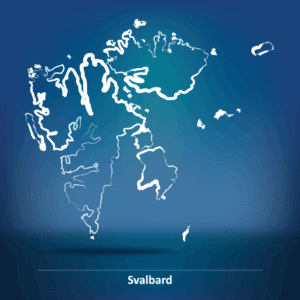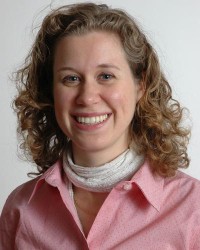 The REGIMES project is funded by the Research Council of Norway POLARPROG program and contributes to the knowledge base about trade-offs between different ecosystem services given the expected changes to the marine environment and management needs in light of this on the archipelago of Svalbard at 78oN, arguably vulnerable environmentally, socially as well as politically to a changing climate. People depend on ecosystem goods and services for their livelihoods, and ecosystem that are indispensable to human health and well-being. Climate change is anticipated to have a variety of effects on the provision of marine ecosystem services, which may have profound impacts on the people, and provides for life’s basic need (Millennium Ecosystem Assessment 2005). Climate change affects marine ecosystems and their services directly through marine resources (e.g., species) distributions and interactions (Cheung, Dunne et al. 2011). By assessing ES and the natural marine system and the effects of value of the services that the natural system provides, we can assess the potential impacts when climate changes.
The REGIMES project is funded by the Research Council of Norway POLARPROG program and contributes to the knowledge base about trade-offs between different ecosystem services given the expected changes to the marine environment and management needs in light of this on the archipelago of Svalbard at 78oN, arguably vulnerable environmentally, socially as well as politically to a changing climate. People depend on ecosystem goods and services for their livelihoods, and ecosystem that are indispensable to human health and well-being. Climate change is anticipated to have a variety of effects on the provision of marine ecosystem services, which may have profound impacts on the people, and provides for life’s basic need (Millennium Ecosystem Assessment 2005). Climate change affects marine ecosystems and their services directly through marine resources (e.g., species) distributions and interactions (Cheung, Dunne et al. 2011). By assessing ES and the natural marine system and the effects of value of the services that the natural system provides, we can assess the potential impacts when climate changes.
We chose Svalbard as our study site also is because change is happening in the North Atlantic. Never before have pelagic stocks such as Northeast Atlantic mackerel been seen as far north as now. Because of this change, a cold front has stymied international agreements on how to share the widely distributed stocks. A new era has therefore reached the Arctic; an era instigated by climate change on ES. A case study of Svalbard will provide a better understanding of provision and values of multiple ES and potential trade-offs in marine resource uses and management decisions in the Arctic ecosystem. We argue that Svalbard is in a critical phase of institutionalization of a contested area to become a Norwegian property regime, and it is important to make allowances to this most powerful ally with regards to the ecosystem services of fish stocks, though it is a trade-off. Russia has much to gain by Norway being de jure owners of the Svalbard zone, especially with the hopes of oil and gas discoveries within the zone. And it is no secret that the hopes of Russian politicians lie in being strong leaders in the Arctic: “Our interests are concentrated in the Arctic,” the Russian president Vladimir Putin said, according to Reuters. “And of course we should pay more attention to issues of development of the Arctic and the strengthening of our position [there].”[1]
[1] http://www.washingtonpost.com/blogs/worldviews/wp/2014/08/29/putin-thinks-of-the-past-when-talking-ukraine-but-the-arctic-is-where-he-sees-russias-future/
Team members:
| Picture | Bio |
|---|---|
 | Dr. Dorothy Dankel is a researcher with an interdisciplinary marine science background. Since 2012, Dankel has been a board member of the Nordic Marine Think Tank (www.nmtt.org). Dankel is a co-editor for the Routledge textbook Management Science For Fisheries: An introduction to simulation-based methods, and has co-edited a special issue for the academic journal Futures on social and ethical topics of biotechnology and society. Dankel was invited to give a Talk @ Google lecture at Google’s Cambridge campus in May 2013 on integrated ocean assessments. She recently represented the University of Bergen as a “young innovative researcher” for the annual University of Bergen Christie Conference in 2015. Currently, the consolidation phase of her research reveals compelling information in the science for policy realm. Dankel’s current work demonstrates an interdisciplinary framework to analyze the networks of scientists and policy-makers in marine Integrated Ecosystem Assessments. Dankel strives for new thinking in the marine sciences, including integration of the humanities into long-term management plans. Transdisciplinary perspectives of integrated assessments have the opportunity to advance the frontiers of knowledge and set a clear and inspirational target for research quality assurance of integrated assessments across Europe. |
 | Dr. Tiller works as a Researcher at SINTEF Fisheries and Aquaculture in Trondheim, Norway. She holds a PhD in Political Science, with a focus on marine and coastal interdisciplinary research at all levels of analysis, from local stakeholders to international regimes. Her expertise is in regime interplay, governance, policy mitigation and stakeholder adaptation, stakeholder driven future scenario building and qualitative based/quantitative output methodologies of Systems Thinking, Bayesian Belief Networks and Fuzzy Cognitive Mapping (FCM). Her background also includes valuable experience working in international and inter-disciplinary consortiums, both US, EU and RCN. She is a Fulbright Scholar and a recipient of the Leiv Eirksson Mobility Fund for 2011-2012 for an inter-disciplinary project in Southern California. She is furthermore Operational Leader for the ongoing EU project OCEAN-CERTAIN in addition to being Operational Manager for REGIMES. Finally, she is the Norwegian representative on the Management Committee of the COST Action: CA15217 - Ocean Governance for Sustainability. Citations | Public profile at SINTEF | ResearchGate profile | LinkedIn profile |
 | Dr. Yajie Liu is a Resource and Environmental Economist at Department of Economics, Norwegian University of Science and Technology |